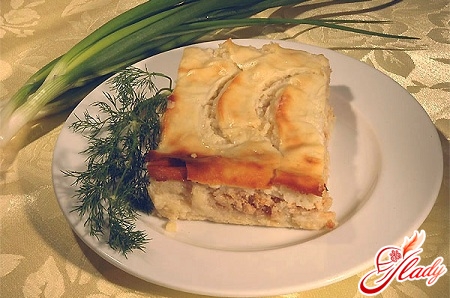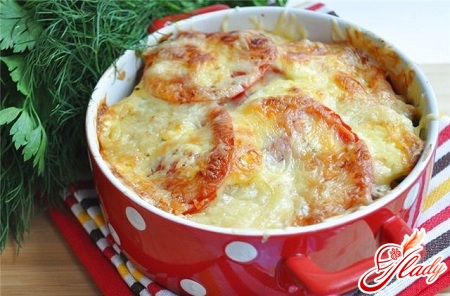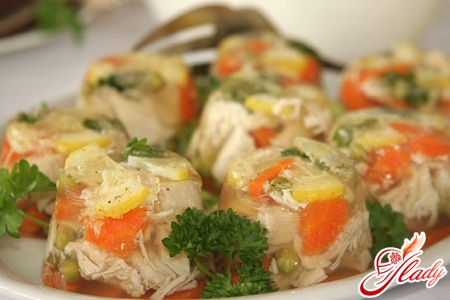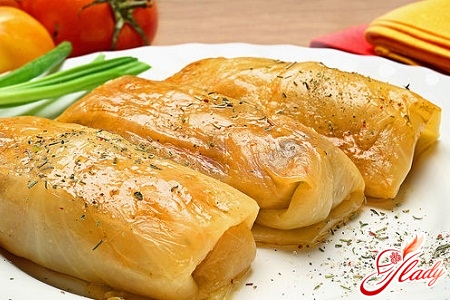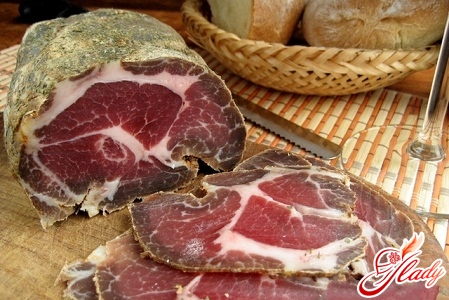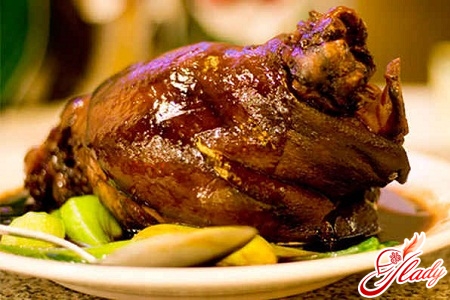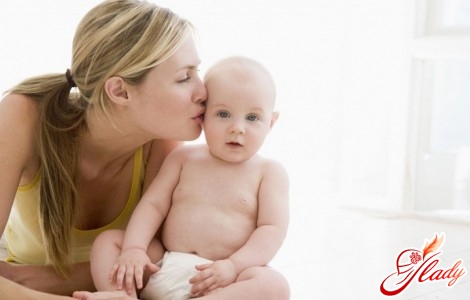 There are many myths about the breastfeeding. A special diet for a nursing mother is the most common myth. Yes, and the recommendations of pediatricians in maternity homes and children's clinics are based on statistical data: as the number of allergic children is skyrocketing, the recommendations include more and more restrictions on the feeding of the mother in childbirth. As a result, from the first days of breastfeeding, the nursing mother is so limited, as if she and the baby already have hereditary food allergy. However, as practice shows, most often a food allergy (the most popular form is diathesis) occurs in children who are on artificial feeding, and not in babies-babies. Proper nutrition for a nursing mother is the most important component of breastfeeding. Specialists in breastfeeding, as a rule, recommend removing allergens such as all red and orange fruits and vegetables, such as carrots, red apple, mandarin, orange, etc., from the nursing mother's menu. But food is the main source of vitamins, minerals and nutrients necessary for growth and development of the body. It is proved that with limited and meager feeding of a nursing mother, not only her body, not yet restored after birth, suffers, but also the baby. The strongest allergens are chocolate, strawberries, crawfish, shrimp and peanuts. Therefore, nursing mother should avoid the use of these products when drawing up her own nutrition menu. Now it is proved that the gradual introduction of allergens through breast milk is the most effective method, allowing the baby to develop resistance to the occurrence of allergies in the future. Breast milk helps the baby to get acquainted with the foods that he will eat when he grows up. Therefore, a child predisposed to allergies is not recommended to wean until he gets acquainted with all the products through the mother's breast milk. The principle of gradual introduction of new products into the ration of a nursing mother should be observed in women with babies under 4 months of age. Also, nursing mother should remember that breast milk not only allows the newborn baby to adapt to allergens, but also the health of the child directly depends on it. Basic principles aimed at proper nutrition for a nursing mother:
There are many myths about the breastfeeding. A special diet for a nursing mother is the most common myth. Yes, and the recommendations of pediatricians in maternity homes and children's clinics are based on statistical data: as the number of allergic children is skyrocketing, the recommendations include more and more restrictions on the feeding of the mother in childbirth. As a result, from the first days of breastfeeding, the nursing mother is so limited, as if she and the baby already have hereditary food allergy. However, as practice shows, most often a food allergy (the most popular form is diathesis) occurs in children who are on artificial feeding, and not in babies-babies. Proper nutrition for a nursing mother is the most important component of breastfeeding. Specialists in breastfeeding, as a rule, recommend removing allergens such as all red and orange fruits and vegetables, such as carrots, red apple, mandarin, orange, etc., from the nursing mother's menu. But food is the main source of vitamins, minerals and nutrients necessary for growth and development of the body. It is proved that with limited and meager feeding of a nursing mother, not only her body, not yet restored after birth, suffers, but also the baby. The strongest allergens are chocolate, strawberries, crawfish, shrimp and peanuts. Therefore, nursing mother should avoid the use of these products when drawing up her own nutrition menu. Now it is proved that the gradual introduction of allergens through breast milk is the most effective method, allowing the baby to develop resistance to the occurrence of allergies in the future. Breast milk helps the baby to get acquainted with the foods that he will eat when he grows up. Therefore, a child predisposed to allergies is not recommended to wean until he gets acquainted with all the products through the mother's breast milk. The principle of gradual introduction of new products into the ration of a nursing mother should be observed in women with babies under 4 months of age. Also, nursing mother should remember that breast milk not only allows the newborn baby to adapt to allergens, but also the health of the child directly depends on it. Basic principles aimed at proper nutrition for a nursing mother:
Caloric content of food
After the birth of the baby, the nursing mother is responsibleas for their health, and for the health of a newborn child. The amount of breast milk and the nutrient content in it directly depends on the nutrition of the nursing mother. It is proved that on average the caloric intake of the mother's diet during breastfeeding should be 500-800 kcal higher than usual. By the way, it is not recommended to follow diets for weight loss during breastfeeding.
Organization of the feeding regime of the nursing mother
Mom, breastfeeding a baby, it is necessaryeat often and in small portions, preferably - the main part of the meal to consume after feeding and eat some more part just before feeding - it is believed that this milk will increase. You should eat in moderation, do not overeat. By the way, it is best to organize the main meal during the baby's sleep - this will allow the mother to take a comfortable position, calmly eat and not be distracted by the cares of the child. Especially such a diet is recommended for breastfeeding mothers with babies at birth from birth to six months.
Varied nutrition of nursing mother
Nutrition of the nursing mother should be as much as possiblevarious, otherwise the absence of any useful product can lead her and the child to beriberi. It is not recommended to follow diets, especially single-product ones, for example, apple, cottage cheese, rice, etc. - it is fraught with a sharp decrease in the body of the mother and in breast milk the amount of proteins, carbohydrates, fats and vitamins. In the aftermath mono-diet, both - mother and baby - will get the most stress. Moreover, the child can give up breast, and the transition to artificial feeding will cause problems of the gastrointestinal tract in the baby.
The rate of liquid intake during the day
The liquid in the nourishment of nursing mothers plays onefrom important roles. Losing a lot of fluid from the body during childbirth, the nursing mother needs to fill it, otherwise it can lead to dehydration of the body. The amount of milk produced directly depends on the amount of liquid consumed. The minimum fluid required per person per day is 1-1.5 liters. You can also calculate your rate by a simple formula: for 1 kg of weight you need to consume 30 ml of liquid. For example, if the weight of the parturient is 60 kg, the required amount of liquid is 1.8 liters. Please note that this is the norm only for the maintenance of the organism of the nursing mother. To produce a sufficient amount of breast milk, the liquid should be consumed twice as much. By the way, it is proved that the arrival of milk is facilitated by the use of one glass of drinking water 15-20 minutes before feeding. Carbonated drinks, including mineral water, are not allowed to be fed to a nursing mother, since gases contained in water excite the processes of fermentation in the intestines, which leads to colic in the tummy of the baby. In addition, preservatives and colorants easily penetrate into breast milk. It is allowed to drink only non-carbonated mineral water. Natural juices are certainly useful, but it should be noted that the juice of squeezed red apples, grapes, tomato juice and citrus juices is not recommended. You can drink loose coffee and tea. Otherwise, it will negatively affect the child's nervous system. By the way, green tea contains caffeine even more than soft coffee. A tea with milk, - a popular grandmother's recipe, - does not lead to increased lactation, but also harms. Ideally, the main drink of a woman during lactation should be a filter-cleaned drinking water or spring water. Alcoholic beverages should be excluded unambiguously, since, penetrating into breast milk, alcohol can lead to inhibition of the development of both physical and mental abilities, or, worse, cause alcohol poisoning in the child. 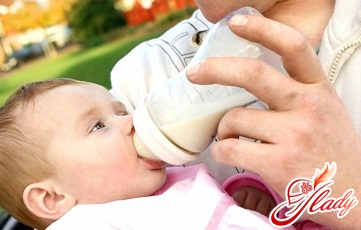 First of all, in order not to harm youra newborn baby, a nursing mother should make her own menu, taking into account all potentially dangerous products. Much attention should be paid to the mandatory dishes in the nursing mother's menu. Direct composition of milk does not depend on what the mother eats. Milk is a very complex liquid that is synthesized from the components of blood and lymph and depends on the internal mechanism of lactation. Potential danger to the child is salty, smoked, fatty dishes. It is desirable to completely exclude them from the ration of the nursing mother. Canned, pickles, marinades are undesirable. Harmful and a large number of spices, do not abuse onions and garlic. Meat should be present in the diet daily. Preference should be given to rabbit meat, white poultry meat, veal or pork. Meat is rich in protein, necessary to ensure all life processes of any organism. The protein consists of 22 amino acids, which, when split, are absorbed into the blood. With a lack of protein, the body loses muscle mass, immunity weakens, the rhythm of the heart and respiratory system is disrupted. The preferred method of cooking is cooking. It's not recommended to cook it. Fish is also necessary for the mother's feeding mother. From all variety of fish it is best to choose low-fat species such as - hake, pollock, pike perch, cod, etc. Fish is rich in protein and vitamin D. The liver of fish, especially cod, is rich in many microelements and vitamins. The preferred method of cooking is cooking. Dairy products are important for the nursing mother's menu like meat and fish. Milk and sour milk products are rich in protein and calcium. Calcium is indispensable for the bone apparatus, good work of the cardiovascular and other body systems. It is the lack of calcium that provokes the development of rickets in young children. Sour-milk products improve digestion. It has been proven that a nursing mother regularly consumes dairy products, the child is less likely to suffer from constipation. The recommended dose in the use of dairy and fermented milk products, especially liquids, for example milk or kefir, is not more than 500-800 g per day. Exceeding this rule can lead to allergic reactions in the child. Vegetables and fruits are no less important in the diet of a nursing mother because of the high fiber content, which contributes to the good functioning of the digestive tract and the intestinal system of the body. In addition, vegetables and fruits contain a range of vitamins and trace elements. Cereals are rich in dietary fiber, especially buckwheat, millet and oatmeal. In general, the diet of the nursing mother should be the same as during pregnancy. Special diet or any restriction in nutrition can be prescribed by the doctor in special cases, for example, when the mother of the child is a food allergy food, animal hair, pollen and so on, or the family is on malnutrition. If a mother or father suffers from any kind of allergy, then the child can inherit it at the genetic level. Therefore, nursing mother should more closely monitor their diet, as in this case the baby can suffer from diathesis, especially in the first two months of life. However, the lactating allergic mother should know that, first of all, diathesis in children can cause such foods as:
First of all, in order not to harm youra newborn baby, a nursing mother should make her own menu, taking into account all potentially dangerous products. Much attention should be paid to the mandatory dishes in the nursing mother's menu. Direct composition of milk does not depend on what the mother eats. Milk is a very complex liquid that is synthesized from the components of blood and lymph and depends on the internal mechanism of lactation. Potential danger to the child is salty, smoked, fatty dishes. It is desirable to completely exclude them from the ration of the nursing mother. Canned, pickles, marinades are undesirable. Harmful and a large number of spices, do not abuse onions and garlic. Meat should be present in the diet daily. Preference should be given to rabbit meat, white poultry meat, veal or pork. Meat is rich in protein, necessary to ensure all life processes of any organism. The protein consists of 22 amino acids, which, when split, are absorbed into the blood. With a lack of protein, the body loses muscle mass, immunity weakens, the rhythm of the heart and respiratory system is disrupted. The preferred method of cooking is cooking. It's not recommended to cook it. Fish is also necessary for the mother's feeding mother. From all variety of fish it is best to choose low-fat species such as - hake, pollock, pike perch, cod, etc. Fish is rich in protein and vitamin D. The liver of fish, especially cod, is rich in many microelements and vitamins. The preferred method of cooking is cooking. Dairy products are important for the nursing mother's menu like meat and fish. Milk and sour milk products are rich in protein and calcium. Calcium is indispensable for the bone apparatus, good work of the cardiovascular and other body systems. It is the lack of calcium that provokes the development of rickets in young children. Sour-milk products improve digestion. It has been proven that a nursing mother regularly consumes dairy products, the child is less likely to suffer from constipation. The recommended dose in the use of dairy and fermented milk products, especially liquids, for example milk or kefir, is not more than 500-800 g per day. Exceeding this rule can lead to allergic reactions in the child. Vegetables and fruits are no less important in the diet of a nursing mother because of the high fiber content, which contributes to the good functioning of the digestive tract and the intestinal system of the body. In addition, vegetables and fruits contain a range of vitamins and trace elements. Cereals are rich in dietary fiber, especially buckwheat, millet and oatmeal. In general, the diet of the nursing mother should be the same as during pregnancy. Special diet or any restriction in nutrition can be prescribed by the doctor in special cases, for example, when the mother of the child is a food allergy food, animal hair, pollen and so on, or the family is on malnutrition. If a mother or father suffers from any kind of allergy, then the child can inherit it at the genetic level. Therefore, nursing mother should more closely monitor their diet, as in this case the baby can suffer from diathesis, especially in the first two months of life. However, the lactating allergic mother should know that, first of all, diathesis in children can cause such foods as:
- citrus fruits (orange, mandarin, lemon, grapefruit);
- dairy;
- strawberries, raspberries, sea-buckthorn berries;
- protein of beef and poultry meat;
- fish and fish products;
- soybeans, beans and more.
Allergies in a baby can be caused by variousadditives used in the food industry, for example, dyes, preservatives, flavors, even contained in baby food. If the baby is prone to allergies, the nursing mother needs some restrictions on nutrition. In the first one or two weeks of the life of the allergic child, as a rule, cow's milk, eggs, chicken meat, fish, nuts, chocolate, coffee, cocoa, citrus fruits and much more are excluded from the feeding mother's diet. Restrictions in nutrition are set by the doctor. After a certain time, dangerous foods are injected one by one into the diet of the nursing mother. If the baby has an allergic reaction in the form of reddening of the skin of the cheeks, dryness and flaking of the skin on the legs, elbows, there is increased gas formation, bloating, etc., then this product must be excluded from the diet for 1 month, and then repeated at the introduction its in the diet of feeding. In a word, the breastfeeding of an allergic child, of course, will require strict limitations on nutrition in the mother. But, as practice shows, when all the recommendations of a specialist are implemented, the child in most cases outgrows his allergy with minimal consequences. By the way, a child on artificial feeding requires more stringent dietary restrictions than for a baby, and the family will still need to give up some of the foods or dishes so as not to tempt the child with sweet or anything tasty, but highly allergenic for him. It should be noted that very often babies can react not to a specific product, but to a certain recipe, for example, stew with cabbage meat or potatoes, stewed with mushrooms. Therefore, even if the mother does not breast-feed, she will have to comply with the diet and, most likely, more than one year. Thus, the diet of the nursing mother plays a very important role in the health of the newborn baby. It is not difficult to do this, and if problems arise, the breastfeeding consultant and the pediatrician will help to solve all the difficulties. Health to you and your baby! We advise you to read:




